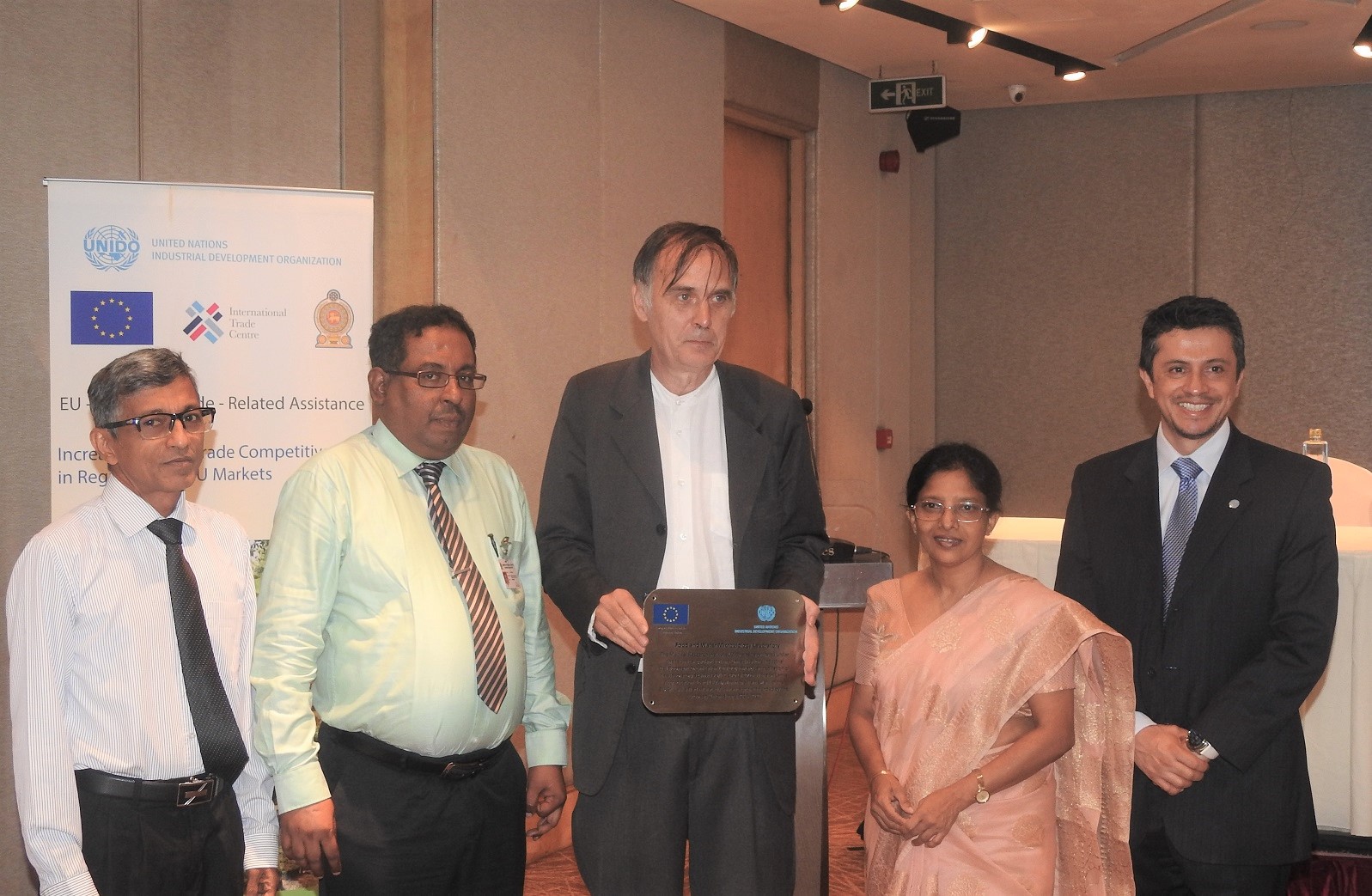March, 4, 2020

For the first-time, a testing laboratory under the Ministry of Health and Indigenous Health Services (MoH) achieved accreditation to an international standard, ISO/IEC 17025:2005 – general requirements for the competence of testing and calibration laboratories, and celebrated this milestone, on 02 March 2020 at Hilton Colombo Residence, Colombo 2. The accreditation was achieved with the technical support of the United Nations Industrial Development Organization (UNIDO) within the framework of the EU-Sri Lanka Trade Related Assistance project, funded by the European Union (EU). Dignitaries and honored guests, including Dr. Anil Jasinghe, Director General Health Services/Chief Food Authority, Dr. Lakshman Gamlath, Deputy Director General, Environmental Health, Occupational Health and Food Safety, Ms. Chandrika Thilakaratne, Director/CEO, Sri Lanka Accreditation Board, Dr. Jayaruwan Bandara, Director, Medical Research Institute (MRI), and Mr. Frank Hess, Head of Cooperation, Delegation of the European Union to Sri Lanka and the Maldives, among others, delivered opening remarks to 77 guests from policy and trade support institutions and industry in attendance.
MRI, under Ministry of Health, is the premier center in the country for biomedical and applied health research. UNIDO capacitated the food and water laboratory of MRI, an approved analyst under Food Act No. 26 of 1980, towards accreditation by the Sri Lanka Accreditation Board (SLAB) for microbiological testing of Aerobic Plate Count, Salmonella spp, Staphylococcus aureus, Coliform and Escherichia coli. Responsible for providing evidence in courts, the achievement of accreditation gives weight to MRI’s mandate as an approved analyst.
UNIDO carried out a gap assessment of MRI’s testing services and identified gaps against ISO/IEC 17025:2005 and corresponding corrective actions. UNIDO delivered training on all aspects of the standard and facilitated the calibration of equipment and procurement of monitoring equipment to maintain quality control and accuracy of results.
Conformity assessment builds confidence between consumers and stakeholders, especially suppliers. It offers a basis for products or services selection – products or services bearing a mark or certificate of conformity lends consumer confidence. As a passport for international trade, conformity assessment provides a company with a competitive edge in the market. When a company assesses its products and services in accordance with relevant standards, this helps the company to adapt to the latest market trends regarding quality and mitigates the costs related to product returns, buyer complaints, and loss of goodwill in local, regional and international markets.
Beyond MRI’s food and water laboratory, the project supports 25 other conformity assessment bodies (CAB) and national quality infrastructure institutions, such as the Sri Lanka Accreditation Board, the Sri Lanka Standards Institute, and the Measurements Units, Standards and Services Department, in capacitating them towards international recognition, particularly in expanding testing services for food safety and quality-related parameters in the food and spices sectors.
Video Story